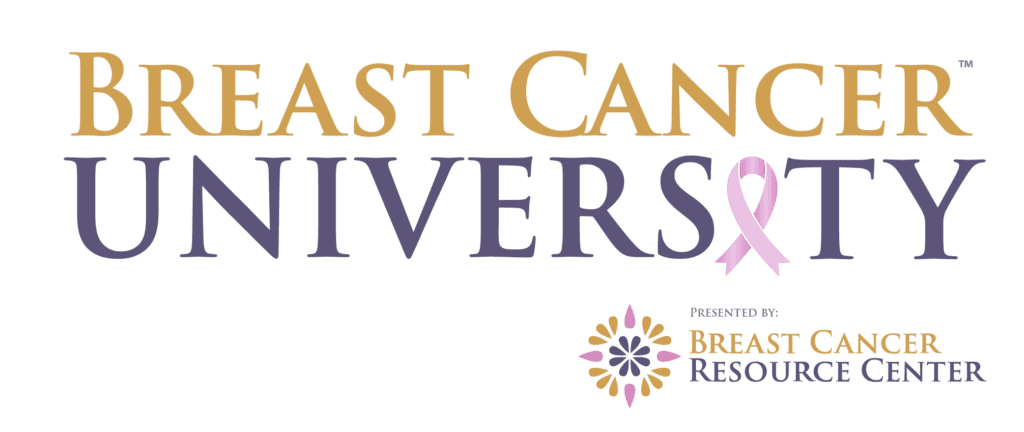By: Medical Oncologist Dr. Jane Chawla
ASCO (American Society of Clinical Oncology) is a professional organization representing physicians of all oncology sub-specialties who care for people with cancer. ASCO’s mission is to conquer cancer through research, education, and promotion of the highest quality patient care. ASCO’s vision is a world where cancer is prevented or cured, and every survivor is healthy.
Members meet annually at the ASCO Annual Meeting. It offers informative educational and scientific sessions that highlight the latest in cancer care treatments. This year’s meeting was June 2nd-6th, 2017 in Chicago, Illinois.
Dr. Chawla is a local medical oncologist and also on BCRC’s Medical Advisory Committee. We appreciate her sharing highlights from this year’s annual meeting:
METASTATIC BREAST CANCER
– The class of oral chemotherapy drugs called CDK 4/6 inhibitors (palbociclib, abemaciclib) continue to show benefit in women with ER+, HER2- breast cancer. They are usually used with aromatase inhibitors, but show benefit when used alone as well. Palbociclib (Ibrance) is FDA-approved and is on the market.
-Neratinib has shown benefit in patients with HER2+ breast cancers. It has been studied alone and in combination with the chemotherapy drug capecitabine (Xeloda). It will likely be FDA-approved later this year.
-The PARP inhibitor, Olaparib (Lynparza), continues to show benefit in patients with HER2- metastatic, germline BRCA mutated cancers.
EXERCISE
-Studies continue to show a positive relationship between physical activity and improved survival after a breast cancer diagnosis. Exercise both during treatment and after treatment has the potential to affect survival.
-Cardiovascular disease is a leading cause of death in older women who have undergone treatment for breast cancer. Heart failure associated with breast cancer treatment carries a higher mortality than heart failure from other causes. Decreased activity level, weight gain, and cardiac toxicity associated with cancer treatments increase the risk of cardiovascular disease.
-One study found that women who exercised regularly and ate a healthy plant-based diet after breast cancer treatment had a decreased risk of cardiovascular disease. These women had a 50% decreased risk of dying of cardiovascular disease. All women benefited, regardless of their underlying risk factors (diabetes, hypertension etc) and regardless of the kind of treatment they underwent for their cancer (radiation, chemotherapy, Herceptin, or endocrine therapy).
-A second study showed that women who exercised during and after breast cancer treatment, had a lower rate of breast cancer recurrence and a lower rate of a 2nd breast cancer. Women who exercised also had higher chemo completion rates. Patients exercised at least 8 MET/hrs per week (Metabolic Equivalent) OR 3-5 hours of moderate pace walking per week.
ADJUVANT BREAST CANCER
-Giving zolendronic acid (Zometa) every 6 months during treatment with an aromatase inhibitor (anastrozole, letrozole etc) decreases bone loss. One study also showed that it decreases the development of bony metastases and improves survival.
-Giving a year of pertuzumab (Perjeta) in combination with trastuzumab (Herceptin) in patients with HER2+ breast cancer decreases the risk of recurrence, but by only 1.7%. The benefit probably does not justify the huge cost and the side effects for most patients.
-There may be a role for giving a shorter course of trastuzumab (9 weeks rather than 1 year) in patients with cardiac concerns. There were fewer cardiac issues in the patients receiving the shorter course of treatment. Those with higher staged cancers did better with the year of Herceptin.
-Many women undergoing adjuvant chemo after breast cancer surgery may not need an anthracycline (Epirubicin, doxorubicin) as part of their treatment regimen. Omitting these drugs may not significantly increase the risk of recurrence. These drugs can lead to cardiac toxicity in a small percentage of patients. It still may be recommended for some patients with higher risk or higher staged cancers.
PREGNANCY
-One study showed that patients who became pregnant after undergoing treatment for breast cancer did not have a higher risk of breast cancer recurrence. Women were followed for about 10 years.

Dr. Chawla’s interest in medicine began at an early age. She attended a lecture delivered by a leading surgical oncologist describing his patients’ battle with cancer. He stressed the importance of humanizing patient care and the importance of addressing both the emotional and psychological implications of cancer. This philosophy continues to inform Dr. Chawla’s practice even today. She strives for a compassionate and holistic approach in care of her patients.
